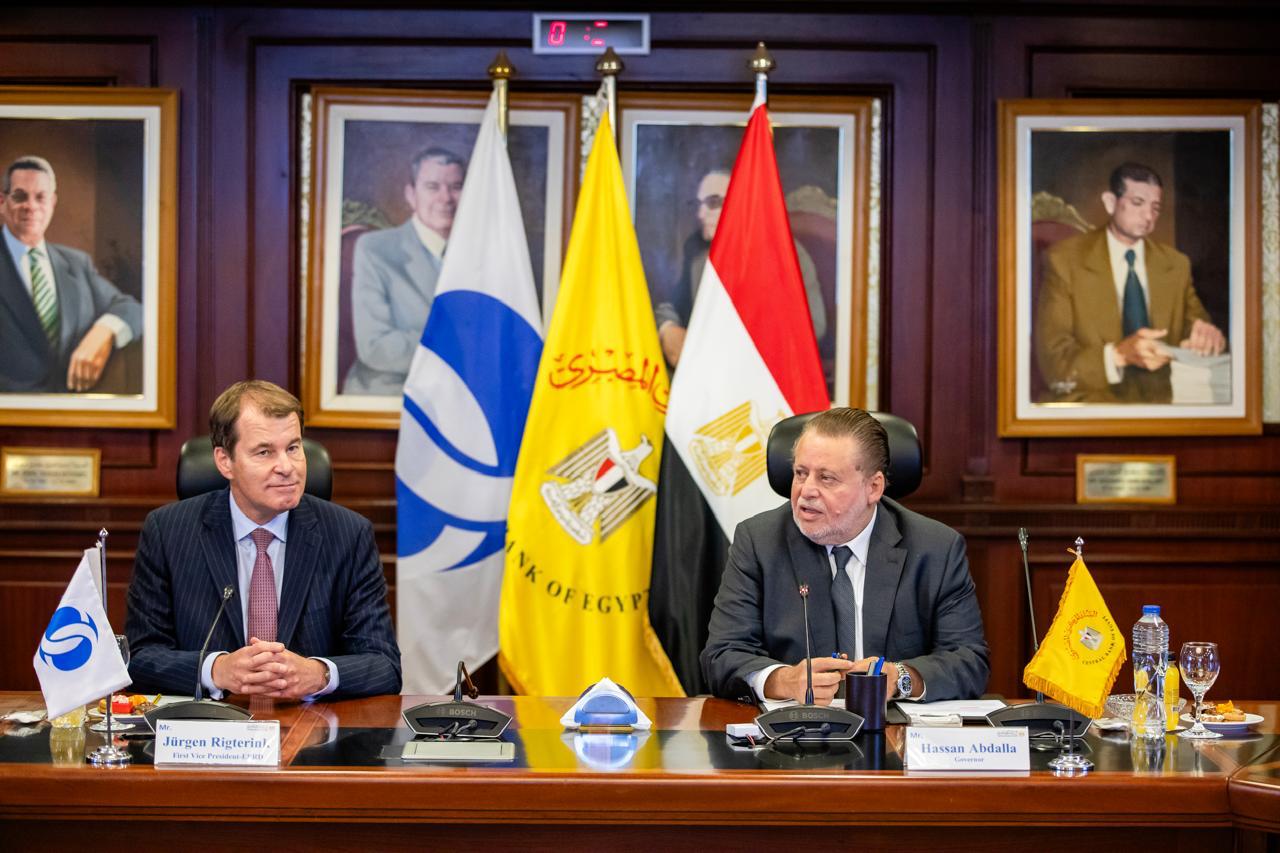CBE Governor Hassan Abdalla signs EBRD’s Women Entrepreneurs Finance Initiative code
In a significant move towards promoting women’s financial inclusion and economic empowerment, Hassan Abdalla, Governor of the Central Bank of Egypt (CBE), signed the Women Entrepreneurs Finance Initiative (We-Fi) code, a CBE release showed on Monday.
Launched by the European Bank for Reconstruction and Development (EBRD), the initiative aims to empower women-led micro, small, and medium enterprises (MSMEs) by facilitating access to finance and providing essential technical support.
The signing ceremony took place in the presence of EBRD’s First Vice President, Jürgen Rigterink, and Vice President for Banking, Matteo Patrone, alongside CBE officials.
Governor Abdalla welcomed the launch of We-Fi in Egypt, highlighting its alignment with the government’s vision for women’s financial inclusion. He pointed to the CBE’s ongoing efforts, in collaboration with stakeholders, to improve access to financing for women entrepreneurs. These efforts have yielded significant progress, with the number of financially included women in Egypt reaching 20.3 million, a remarkable 244 per cent increase since 2016.
Rigterink acknowledged the Central Bank’s leadership in financial inclusion, particularly for women-led MSMEs. He emphasized the EBRD’s commitment to supporting the CBE in this initiative, using We-Fi as a platform to bridge the gender financing gap.
We-Fi will provide technical support to build capacity within the Egyptian banking sector, financial service providers, and relevant entities. This collaboration, led by the Egyptian Banking Institute (EBI) and involving banks and state bodies, aims to strengthen women’s financial inclusion and develop suitable financial and non-financial products and services for them. The initiative will also allocate funding to support women’s entrepreneurial endeavors, promoting gender equality, eliminating gender barriers, and reducing financing gaps.
We-Fi is a global multi-stakeholder partnership involving 14 governments, 8 multilateral development banks, and other public and private sector players, hosted by the World Bank Group. The EBRD launched the initiative in three Arab countries – Egypt, Morocco, and Jordan.


